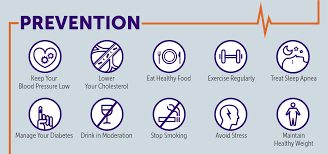The Impact of Air Quality on Respiratory Health
Air quality plays a significant role in overall health, particularly when it comes to the well-being of our respiratory system. Poor air quality can have profound effects on respiratory health, leading to a range of conditions from mild irritations to severe respiratory disorders. In this article, we will explore the impact of air quality on respiratory health, the pollutants that pose a threat, and ways to protect and improve lung function.
Understanding Air Quality
Air quality refers to the state of the air we breathe, determined by the concentration of pollutants present. Common air pollutants include particulate matter (PM), nitrogen dioxide (NO2), sulfur dioxide (SO2), ozone (O3), carbon monoxide (CO), and volatile organic compounds (VOCs). The sources of these pollutants vary, including vehicle emissions, industrial activities, and natural processes.
The Respiratory System and Vulnerability
The respiratory system, comprising the lungs and airways, is directly exposed to the air we breathe. Polluted air can irritate and damage the respiratory tract, leading to various health issues. Certain groups, such as children, the elderly, and individuals with pre-existing respiratory conditions, are more vulnerable to the adverse effects of poor air quality.
Short-Term Effects of Poor Air Quality
- Irritation: Exposure to pollutants can cause irritation of the eyes, nose, and throat.
- Aggravation of Respiratory Conditions: Individuals with asthma, bronchitis, or chronic obstructive pulmonary disease (COPD) may experience worsened symptoms.
- Breathing Difficulties: Poor air quality can lead to shortness of breath and difficulty breathing, especially during physical activity.
Long-Term Effects on Respiratory Health
- Chronic Respiratory Conditions: Prolonged exposure to air pollution is linked to the development and exacerbation of chronic respiratory conditions, including asthma and COPD.
- Decreased Lung Function: Long-term exposure to pollutants may lead to a decline in lung function over time, affecting overall respiratory capacity.
- Increased Risk of Respiratory Infections: Weakened respiratory defenses make individuals more susceptible to respiratory infections such as pneumonia and bronchitis.
Common Air Pollutants and Their Effects
- Particulate Matter (PM): Fine particles can penetrate deep into the lungs, causing inflammation and aggravating respiratory conditions.
- Ozone (O3): Ground-level ozone can irritate the respiratory system, leading to coughing, throat irritation, and chest discomfort.
- Nitrogen Dioxide (NO2): Exposure to NO2 can worsen asthma symptoms and increase the risk of respiratory infections.
- Sulfur Dioxide (SO2): SO2 can irritate the respiratory tract and contribute to the development of respiratory conditions.
- Carbon Monoxide (CO): CO interferes with the ability of blood to transport oxygen, causing fatigue and putting additional stress on the respiratory system.
Protecting Respiratory Health in Poor Air Quality
- Stay Informed: Monitor local air quality indices and forecasts. Limit outdoor activities during days of poor air quality.
- Use Air Purifiers: Indoor air quality is crucial. Air purifiers can help remove pollutants and allergens from indoor spaces.
- Avoid Tobacco Smoke: Smoking and exposure to secondhand smoke significantly harm respiratory health. Quitting smoking or avoiding smoke-filled environments is essential.
- Reduce Vehicle Emissions: Carpool, use public transportation, or choose eco-friendly transportation options to reduce vehicle emissions.
- Create Green Spaces: Support initiatives to create and maintain green spaces in urban areas, as plants help filter and improve air quality.
- Advocate for Clean Air Policies: Support and advocate for policies that promote clean air, such as emission controls and regulations on industrial pollutants.
Seeking Medical Attention
If individuals experience persistent respiratory symptoms, such as coughing, wheezing, or difficulty breathing, seeking medical attention is crucial. Early intervention can prevent the worsening of respiratory conditions and improve overall lung health.
Conclusion
Air quality directly impacts respiratory health, influencing both short-term comfort and long-term well-being. Understanding the sources of air pollution, recognizing the effects on the respiratory system, and taking proactive steps to protect lung health contribute to a healthier and more sustainable living environment. By advocating for clean air and adopting individual and collective measures, we can ensure a breath of fresh air for generations to come.
FAQs
Can air pollution permanently damage the respiratory system?
- Prolonged exposure to high levels of air pollution can lead to permanent damage to the respiratory system, affecting lung function and increasing the risk of chronic conditions.
How can indoor air quality be improved?
- Improving indoor air quality involves proper ventilation, minimizing the use of pollutants, and using air purifiers to filter out contaminants.
Are respiratory conditions reversible with improved air quality?
- In some cases, improvement in air quality can alleviate symptoms and slow the progression of respiratory conditions. However, complete reversal may not be possible in advanced cases.
Can air quality affect individuals differently based on age?
- Yes, certain age groups, such as children and the elderly, may be more vulnerable to the effects of poor air quality due to developing or weakened respiratory systems.
How can communities address air quality concerns collectively?
- Collective efforts can involve supporting clean air policies, promoting sustainable transportation, and participating in community initiatives to reduce pollution sources.







